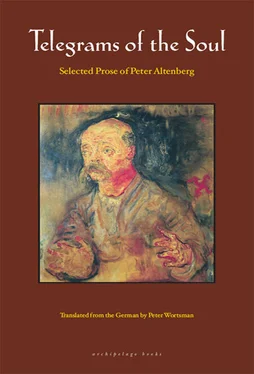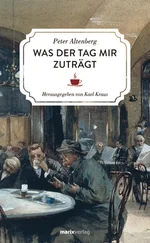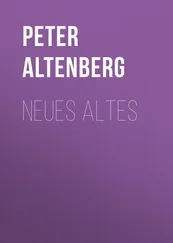I saw a light brown vase here with highlights of gold and dark stripes that dampened the effect. And another yellowish one with milky white hue that made it look pale. And yet another luminous one in the shape of a giant beehive with cells glazed a waxy yellow. And one like the ephemeral green wings of May flies. And still another dark blue vase, its blueness fading to the color of the early morning sky, night breaking into day, and then darkening again, the color of night. Then there were light brown spherical glass bulbs on glass bamboo stalks, a lovely composition. Gallé glasses; light brown flowers appear to emerge foglike out of the glass itself, and yet do not emerge, disappearing in the swirl.
Such vases would not stand forsaken in your cubicles back home! Such vases elicit a gentle love! When you walk into the room you salute them. And when you leave you salute them again. Intimate companions!
So paint your walls white, keep the decor as simple as possible, put up things you can love, like brothers, sisters of the soul, not cold dohickeys, strangers! Then you’ll be rich and never lonesome! For several days now I’ve been in Munich for the very first time. I haven’t seen a thing yet, not a thing listed in the little guidebooks, no monuments, no paintings. I’m not interested in the things that were. I’m interested in the things that are, that will be! But the “new art” beamed out at me from the show windows of the fine stores as I ambled alone down the lovely streets.
Three box cars heaped with hay were burning on an endlessly long freight train carting hay between Rekawinkel and Neulengbach. We had to wait somewhere for an hour and a half. So I was obliged to stop over in Amstetten*Amstetten, a town in Lower Austria on the from eleven in the morning til four in the afternoon.
I saw meadows that no man had ever tread. I heard birds in the beechwood forest or squirrels cracking beechnuts and letting the shells fall. I saw a girl of thirteen years standing in front of the work house with unbelievably lovely long and slender feet and toes, barefoot, of course. She sensed how I worshiped her naked feet. She followed me for a good long stretch, stopped, then gave up. I will never forget her. And one day she will say to her lover or bridegroom: “You’ll never be able to look me deep in the eyes and see all the way down to where our better self lives, like that old nut did that day, August 5, 1916, at two in the afternoon!” Three boxcars heaped with hay were burning directly in front of us and all the other passengers were up in arms, all except for a young lieutenant who was missing a right leg but made do with a pair of elegant, feather-light yellow bamboo crutches, who said: “Dear ladies, it’s generally a good deal more dreary in the trenches than it is here in Amstetten!”
__________________
*Amstetten, a town in Lower Austria on the Ybbs River
You’re already making a long face reading this title.
Aha, yet another depiction in his matchless condensed manner of “seashores,” “evening atmospheres,” “water’s eternal newness,” we know all that. No, this time something else! In autumn I was once the last guest left of the summer season. One evening, a middle-aged baron and learned doctor of philosophy introduced himself, his family was native to these parts. He requested the honor of my acquaintance. Of course! He was very cultivated and very well bred. On the eighth day of our incipient acquaintance he said to me one evening in the course of a stroll:
“Why, pray tell, don’t you give up your criminal plans to take my life?!”
“Since I have no such plans, I cannot give them up!”
“I have nothing against you personally, you are merely the operative agent of a higher power to whom both you and I are beholden! Nevertheless, exceptionally, I enjoin you to cease and desist in this plot to bring about my annihilation, socially, and in all other senses!” From then on I let myself be drawn into this peculiar duel between a healthy spirit (my own) and a sick one in the naïve hope of making him realize through logical argument the folly of his delusion. Unfortunately, each acknowledgment that he’d been wrong about me made him all the more unhappy, desperate and, above all, dogged in his resolve! In his view, I was simply being shrewder, more cunning in my deception. For instance, he bought himself ten Egyptian cigarettes. Upon his emergence from the tobacconist’s, he said: “The cigarettes were poisoned on your orders!” I suggested he save them for me, said I’d smoke them all in front of his eyes from then till nightfall. Whereupon he hissed: “Swindler!”
One evening he said: “I hope your supper tastes particularly good this evening!” “Why?” “Because it’s your last!” Whereupon he pulled out a Browning revolver. He walked me home as usual. I switched on the light in my room, after ten minutes switched it off again, remained seated in the dark for a half hour, then I ventured down the street to see the mayor, Dr. Wolfsgruber. The old man lay sick in bed. Upon learning the name of the person in question the mayor passed word through his chambermaid: He’d receive me in his downstairs parlor, but without any lights on. He said to me: “You have my profound thanks on behalf of our little town! Don’t go to bed, take the earliest train out, unfortunately we thought he was harmless! Thanks again, and be assured of my prompt attention to all necessary actions that must, alas, be taken, in light of your report!”
It was, however, the opinion of the dear little town that “meshuganeh attract each other!”
Hans Schliessmann implored me to come out Friday night to the Park Hotel in Hietzing, where the spirited and tasteful Dostal, band member of the 26ers, was concertizing solo in the large and lovely garden. The concert ended at twelve midnight and Schliessmann was concerned I should catch the last tram home. But it rattled right past us. At that very moment an elegant rubber-tired coach pulled up directly in front of us, and two sassy girls’ voices cried out with joy: “Peter, Jesus, Peter, what ever are you doing here in Hietzing?!”—“I missed the last tram,” I replied, businesslike, and without any overt exuberance at the pleasure of seeing the lovely, racy girls again. — “Don’t you worry now, Peter, we’ll take you along in our carriage, we’re headed for Vienna anyways, what a lucky coincidence—.” Hans Schliessmann stood there greatly stirred in the face of such a true rare stroke of luck, thanked the kind, eye-catching, dainty darlings on behalf of his enviable friend and said that the “golden Viennese heart” was, after all, not yet altogether on the verge of extinction, as he had previously conjectured—.
We drove off. At Mariahilferberg, one of the sweet young things said: “Say Peter, how much’re you gonna pay the cabby?!”—To which I replied: “Nothing. I was invited.”—“Well for Chrissake, you cheapskate, it’s just a measly Crown or two.” For the payee it’s always “costly Crowns,” for the recipient it’s only “a measly Crown or two.” I replied: “I’m your guest.”—“Don’t tell me you was gonna drag your bones all the way to Vienna on foot, you fruitcake?!”—“If push came to shove, I might’ve hailed a hansom.”—“There you are, so you see, it comes down to the same.”—“In that case, I’ll contribute what the hansom would’ve cost—.”—“Will ya get a load o’ that, the guy rides in a rubber-tired coach and wants to pay the price of a hansom, well I’ll be damned—.”—“Alright, so how much do I owe?!”—“Ten Crowns, that’s pennies.”—I did not feel that it was pennies, but I inquired: “Why ten Crowns, if I may ask?!”—“So what if we already drove around a little in Hietzing on such a lovely evening before picking you up, you tightwad, would you grudge us the pleasure!?”—I replied that I would gladly grant them that.”—“So, you see, you’re a gentleman, after all, you’re our good Peter, ain’t ya—.” So their good Peter shelled out the ten Crowns. “What about us, don’t we deserve a little something?!” said the two sweet things. “Ain’t our company worth something to ya, or are we just appetizers before the main course, for Chrissake—?” I gave each of them another Crown. “Peter, Peter, we always took ya for a true poet, a better sort, an idealistically inclined kind o’ guy; don’t tell me we was wrong—.” I called for the coach to stop, got out. “You ain’t sore, are you, Peter?!”—“No. Why should I be sore?!” “—So didn’t you find the ride amusing?!”—“Very,” I replied. That very night I wrote Hans Schliessmann a card: “Concerning your correction of a prior conjecture concerning the demise of the ‘golden Viennese heart,’ I bid you hold off on that correction until next Friday when Dostal of the 26ers once again concertizes at the Park Hotel, Hietzing. More to follow straight from the horse’s mouth—.”
Читать дальше











